This report describes the key events that had an important impact on the political, economic and social processes inside Russia.
Based on the results of the past week, the following key events can be brought to attention:
- In domestic politics, Putin is beginning to redistribute more and more attention to the preparations for the upcoming presidential elections, which are to be held in 2024. This week, Putin’s instructions were published, in which he determined the main focuses of the upcoming election campaign. The bet is on left-wing populism – Putin’s favourite tool, with which he emphasizes social issues. In this case, we are talking about the so-called “SMO” participants and their families and the annexed territories (occupied territories of Ukraine).
- Personnel changes in the military leadership responsible for the so-called “SMO” speak of preparations for strengthening ground operations, designed for an early advance in the Donbas to demonstrate visible results. Apparently, Russia is trying to implement a new strategy, according to which it is planned to create a “security belt” for the Russian regions bordering Ukraine.
- Along with intensifying the domestic political agenda, the confrontation between the main influence groups in Putin’s entourage also became relevant. Putin’s public criticism of Denis Manturov, who is considered the man of Sergey Chemezov, speaks of the Russian President’s profound dissatisfaction not only in the defence sector but also in several processes controlled by his inner circle. Therefore, it is hardly worth talking about serious political reshuffles shortly. Still, if such a “shake-up” from Putin does not help launch the necessary processes, several government changes can be expected.
During January 9th–15th, the following topics were the most relevant for Russia:
1. Personnel changes in the Ministry of Defense of the Russian Federation
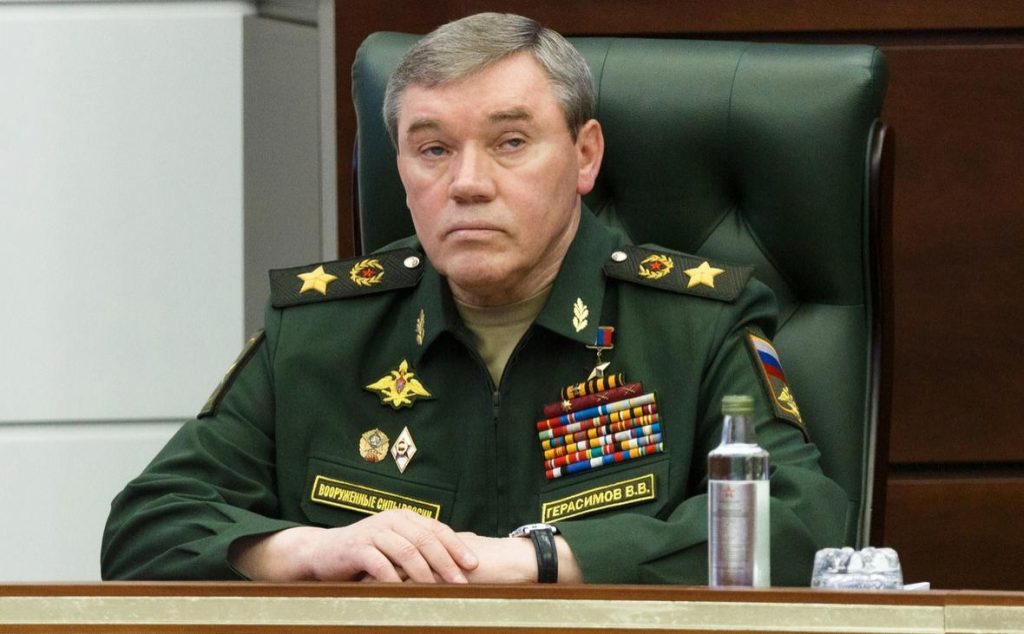
On Wednesday, January 11, the Ministry of Defense of the Russian Federation made personnel changes in the so-called “SMO” control system”. In particular, Army General Valery Gerasimov, Chief of the General Staff of the Russian Armed Forces, was appointed commander of the Russian troops in Ukraine. In addition, army General Sergey Surovikin, who previously held this position, became his deputy and commander-in-chief of the Aerospace Forces.
In addition to Surovikin, two more deputies were appointed: Commander-in-Chief of the Ground Forces, General of the Army Oleg Salyukov, and Deputy Chief of the General Staff, Colonel General Alexey Kim.
Also, on Tuesday, January 10, information appeared about the appointment of General Alexander Lapin as chief of the main headquarters of the ground forces. Previously, he was the commander of the Central Military District of Russia, and during the invasion of Ukraine, he became the commander of the Center group. However, in the autumn of 2022, after a protracted conflict with the so-called “super hawks” group surrounded by Putin, he was dismissed from his position.
Outcomes and outlook:
Personnel changes in the management structure of the so-called “SMO” are more of an organisational nature. Currently, it can be stated that they caused more excitement in the information environment than brought fundamental changes to the actions of the Russian occupation forces on Ukrainian territory. At the same time, some of the most critical points are still worth noting.
First, such personnel transitions are consistent with the continuation of the Kremlin’s policy, according to which Putin takes full responsibility for the war in Ukraine. The image of Putin as the military leader who manages all the processes in the so-called “SMO” is increasingly forming in the media. Neither Surovikin, who is named the prominent ideologue of the destruction of the Ukrainian energy sector (with his assumption of the post of commander of Russian troops in Ukraine, regular massive missile attacks began on the territory of Ukraine) nor Prigozhin or Kadyrov, whose activities of PMCs are increasingly covered in news stories. According to the new concept, it is Putin who should appear in the eyes of voters (the presidential campaign is gradually starting in Russia) as the sole commander and beneficiary of all “successes”. In this situation, Gerasimov only fulfils his official duties without claiming special publicity.
Secondly, as the chief of the General Staff (he retained this position after his new appointment), Valery Gerasimov has all the powers to involve not some separate group of troops but the entire Armed Forces in performing assigned tasks. This removes any restrictions on mobilisation processes or the distribution of troops in different military districts. The situation is similar with resources. Already on Saturday, January 14, Russia used ballistic missiles on the territory of Ukraine (in particular, the morning shelling of Kyiv was invisible to air defence systems due to the ballistic trajectory of the rockets). It is worth noting that Sergey Surovikin had to coordinate all issues on supply, resources, equipment, manpower and strategy with Gerasimov and Shoigu. After personnel changes, the decision-making system can function much faster without unnecessary bureaucracy.
Thirdly, it is worth paying attention to the General of the Army, Oleg Salyukov, who previously commanded the ground forces of the Russian Federation (Alexander Lapin was appointed to his position) and was responsible for the ground operations of the Russian occupation forces in Ukraine. According to Ascolta, in Russian military circles, Salyukov is called one of the few smart generals. He is a public opponent of Sergey Shoigu but, simultaneously, a close friend of Valery Gerasimov. It is noteworthy that the next day after his appointment, Salyukov arrived in Belarus, where he inspected the military units and units of the Russian component of the regional group of troops located at the training grounds of the Armed Forces of the Republic of Belarus. This activity may be associated not so much with the opening of the “Kyiv front”, which is actively discussed in the information space, but with Russia’s plans to resume the offensive in the Kharkiv and Sumy directions.
Fourth, Russia is gradually abandoning the active usage of missiles and UAVs while intensifying ground operations. For example, the last rocket attack was much less than the previous one. Several Ukrainian speakers, as before, linked this factor to the lack of missiles in Russia, but the facts testify to the production of missiles in real-time (earlier, evidence was published on the network that the rockets launched in Ukraine were produced after the start of the Russian invasion), as well as information from Western intelligence indicates the opposite.
According to Ascolta, Russia’s new strategy will be to create a conditional “security belt” for the Kursk, Bryansk and Belgorod regions. For this purpose, offensive operations can be resumed against the Sumy and Kharkiv regions bordering Russia. The implementation of this strategy should begin after the advance of the Russian occupation forces in the direction of Sloviansk and Kramatorsk, which is possible only after the complete capture of Bakhmut and Soledar. For this purpose, the forces of the Wagner PMC were sent to this area, consisting mainly of contract combatants actively recruited in Russian prisons.
Fifth, recently, a conditional group of “super hawks” in Putin’s entourage (Evgeniy Prigozhin, Ramzan Kadyrov and like-minded people) have begun to pose a real threat to the Kremlin. As a result, Putin’s projects gradually began to spiral out of control. And suppose in the case of Kadyrov, one can resort to several legal tools to pacify him (his militants are mainly representatives of the Russian Guard and the Armed Forces of the Russian Federation and are subordinate to Zolotov or Shoigu). In that case, Prigozhin’s PMC has no legal basis in Russia, but it is increasing its influence and is not even afraid to confront the Russian military leaders.
Recently, rumours have been circulating about the possible dismissal of Valery Gerasimov from the post of Chief of the Russian Armed Forces General Staff. It was against him that Prigozhin and Kadyrov most actively opposed. At the same time, his appointment can be regarded as a situational victory in this conflict. The battles for Bakhmut and Soledar led to colossal losses in the ranks of the Wagner PMC, which helped save part of the Russian military personnel. Apparently, if these cities are taken under control by the Russian side, in Moscow, there will be a question about reducing the influence of Prigozhin and his PMCs.
2. Statements of Vasily Nebenzya at UN Security Council’s meeting
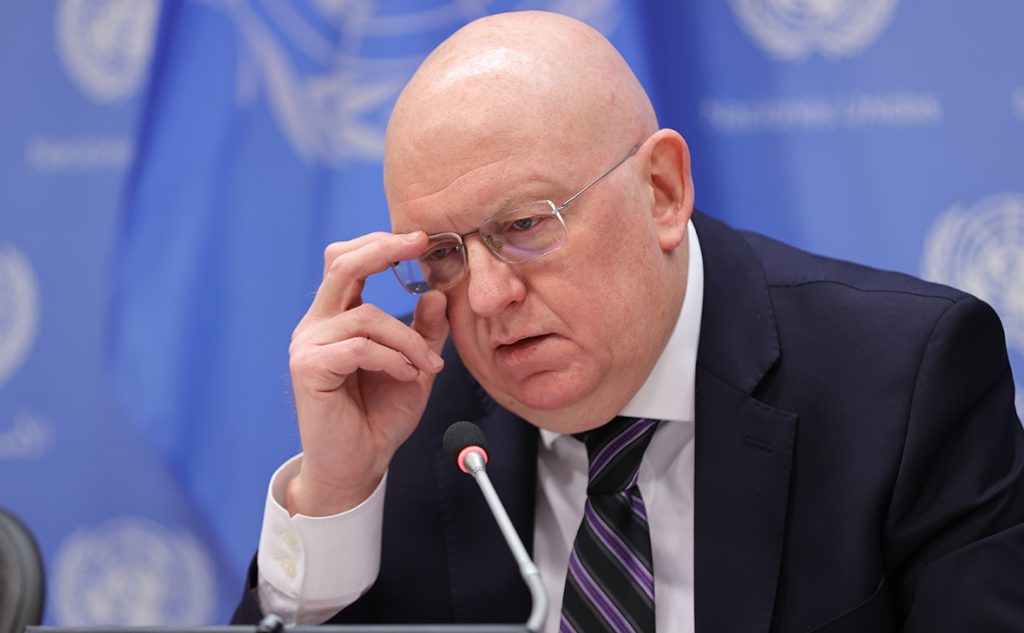
On Friday, January 13, a meeting of the UN Security Council was held at which the question of possible peace talks between Kyiv and Moscow was raised. The representatives of the Secretary-General have indicated that they are ready to help the parties to bring an end to the conflict. At the same time, the Ukrainian side stated that it was impossible to consider Russian conditions and also noted that Russia illegally took the place of the Soviet Union in the UN Security Council.
In turn, the Russian representative Vasily Nebenzya made a series of statements in which he outlined the Russian position and stated that the so-called “SMO” goals could be achieved both by military means and by negotiations.
Key theses:
- UN Under-Secretary-General Rosemary Di Carlo stated, “There are no signs of a cessation of hostilities at this time. Military logic prevails, and there are very few opportunities for dialogue, if any, at the moment. But all wars end and this one will end too.”
- Representatives of Ukraine initiated the issue of exclusion of Russia from the UN Security Council; in their opinion, there are no legal grounds for Russia to “occupy the chair of the Soviet Union.”
- “It is clear that there is no room for compromise with evil. Because if Ukraine stops fighting, it will die. The world as we know it will die. If Russia stops its aggression, the war will end. Everything is straightforward,” said Deputy Prime Minister of Ukraine Emine Dzhaparova.
- Nebenzya: “It will be possible to end “SMO” only when there is no longer a threat to Russia from the territory of Ukraine and when discrimination against the Russian-speaking population of this country ends.”
- Nebenzya: “If this result can be achieved through negotiations, we are ready for such a scenario. If not, all the tasks will be achieved by military means.”
- Nebenzya: “Kyiv is now putting forward the idea of a “peace summit”, emphasising that it is Moscow that does not want peace, and not hiding that Ukraine means by this the capitulation of Russia, which the international community should fix. At the same time, last fall, Kyiv ruled out the possibility of dialogue.”
- Nebenzya: “This legislative provocation cannot be explained by anything other than the desire of Kyiv and its Western sponsors to continue the battle “to the last Ukrainian.”
- Nebenzya: “Ukraine, in fact, has become a NATO PMC. They pay her money, supply her with weapons and intelligence, tell her where to shoot and attack.”
Outcomes and outlook:
Recently, the West has begun to hear more and more statements about the need to find a peace formula that would be able to suit both Kyiv and Moscow. Yet, at the same time, for Kyiv and Moscow, such formulas look entirely different: Russia continues to appeal to the protection of the Russian-speaking population, the fight against the “collective West” and the “liberation of Ukraine from Nazism”, and Ukraine continues to insist on the need to return all occupied territories, complete withdrawal of the Russian occupation troops and payment of reparations.
Following a moderate tendency to search for a peaceful settlement of the situation, Russia is trying in every possible way to demonstrate its readiness for negotiations, which Ukraine allegedly refuses. Of course, such “peacekeeping” intentions are outlandish for Ukraine, but according to Kremlin, they can find support in the West. This factor has provoked Putin’s regular statements over the past months about his readiness for negotiations. Also, this idea was the basis of the declared “truce” at Christmas. Now it is reflected in the statements of Vasily Nebenzya at a meeting of the UN Security Council.
This technology comes down to a single principle, which is increasingly being promoted by the Russian side – “we are ready for peace, but the West is supplying Ukraine with weapons.” Moreover, the whole insidiousness of Russian “peacekeeping” lies in the understanding that a dialogue about peace cannot be built quickly. Even if this idea is actively promoted, implementation will take at least several months. Judging by personnel reshuffles and strategic changes in the Russian army, Moscow plans to spend this time on the promotion and occupation of new territories of Ukraine, which can be used not only to create a conditional “security belt”, which we wrote above but also to obtain more advantageous positions in possible negotiations.
Unfortunately, in this situation, Kyiv is entirely dependent on the position of Western partners, who, if they agree to promote the peace plan on Moscow’s terms, endanger the existence of all of Ukraine. At the same time, the positions of most Western states demonstrate unwavering support for Ukraine, which is unlikely to be affected by Russia’s attempts to show “peacekeeping” intentions.
3. New lists of foreign agents and Vyacheslav Volodin’s proposals
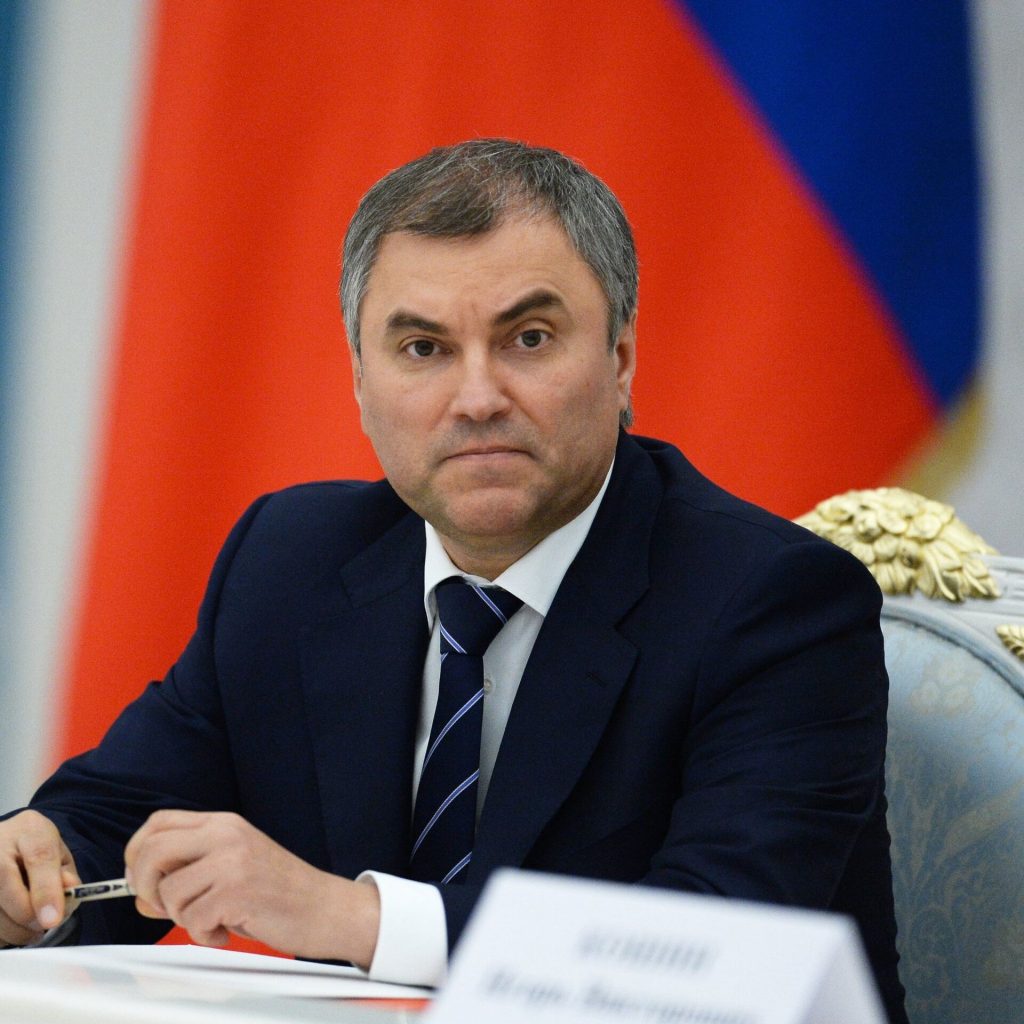
The Ministry of Justice of the Russian Federation has expanded the list of “foreign agents”. Now it includes music critic, and journalist Artemy Troitsky, actor Artur Smolyaninov, former priest Sergey Kirsanov, lawyer Anatoly Fursov, ex-head of Navalny’s Perm headquarters Sergey Ukhov, journalist Alexander Shelest, as well as LLC “TENES”.
On December 1, a new law, “On Control over the Activities of Persons Under Foreign Influence,” came into force. The State Duma adopted the law at the end of June, but since then, more than 50 other laws have been introduced, including the criminal code and several more onerous amendments. Also, the government of the Russian Federation added more stringent rules for their application. According to the new law, everyone who has already been identified as a “foreign agent” will be added to a single register since December 1, and new individuals and organisations will be added there. At the same time, the Ministry of Justice will now publish not only the name but also the personal data of such people, including the date of birth, TIN and SNILS (insurance number of an individual personal account).
Also, on January 13, State Duma Speaker Vyacheslav Volodin offered to confiscate the property of those who publicly supported Ukraine and left Russia, speaking out against the so-called “SMO” and the activities of the Russian authorities in general. It is noteworthy that Senator Andrey Klishas, who previously called a similar initiative unconstitutional, considered this measure possible. However, there are no specifics about the measures being prepared yet; and regarding the statements of Peskov, the ideas of the legislators were not supported by the Kremlin. At the same time, Volodin’s idea was supported by the “head” of the occupied Crimea, Sergey Aksyonov. At the same time, the head of the Human Rights Council under the President of Russia, Valery Fadeev, said that any laws adopted concerning citizens who left the country should not violate the Constitution of the Russian Federation.
Outcomes and outlook:
These events again demonstrate that the cleansing of the “liberal” field continues in Russia, which is connected with the preparations for the presidential election campaign. Of course, Putin’s ratings remain high, especially since the activities of “foreign agents” do not have much influence on the current government’s support (the previous election campaigns were a clear demonstration of this). At the same time, several important aspects should be noted.
First, the Kremlin got an ideal opportunity to clean up the liberal field, the so-called “foreign agents” who actively developed their activities at the expense of Western grants. We are talking not only about public organisations or individual opinion leaders but also about a conditional liberal group in the government of the Russian Federation, which became apparent after Alexey Kudrin resigned from the post of head of the Accounts Chamber and Anatoly Chubais emigrated. It is also important to note that the Head of the Central Bank, Elvira Nabiullina, as well as German Gref and Anton Siluanov, do not play a serious role and, until recently, were only a “liberal” cover for Putin’s policy in front of the West. In March 2022, they were confronted with a fact: either they play by the general rules or resign. Contrary to the expectations of many experts, the “liberals” decided to stay and play by the rules dictated by Putin.
Secondly, a significant part of Russian society currently demonstrates absolute support for Putin’s actions. In fact, Western sanctions contributed to Russia’s middle class’s destruction, which could pose a severe threat to the domestic political situation by provoking protest moods or even creating colour revolutions. The introduction of a unified register of foreign agents, as well as the mass emigration of representatives of the “middle class” and the precariat throughout 2022, helped to cope with this problem. The remaining representatives of this social group were forced to either go to work for the oligarchs or sink into the lower class.
Thirdly, having eliminated such a threat within the country, the Kremlin has created an advanced threat for itself in the face of a conditional group of emigrants. It is gaining strength in the West and is increasingly opposing Putin and his entourage. This factor does not have a profound influence at present. Though after a few years, it can create a significant force influencing political processes within Russia. A similar situation was observed in Moldova, where a significant part of the population lives in exile, and it was thanks to support at foreign polling stations that the pro-Western Maia Sandu was able to win the presidential election. It is important to note that a similar situation is observed in Ukraine, where, according to the UN, about 9 million people emigrated in 2022.
4. Vladimir Putin’s instructions
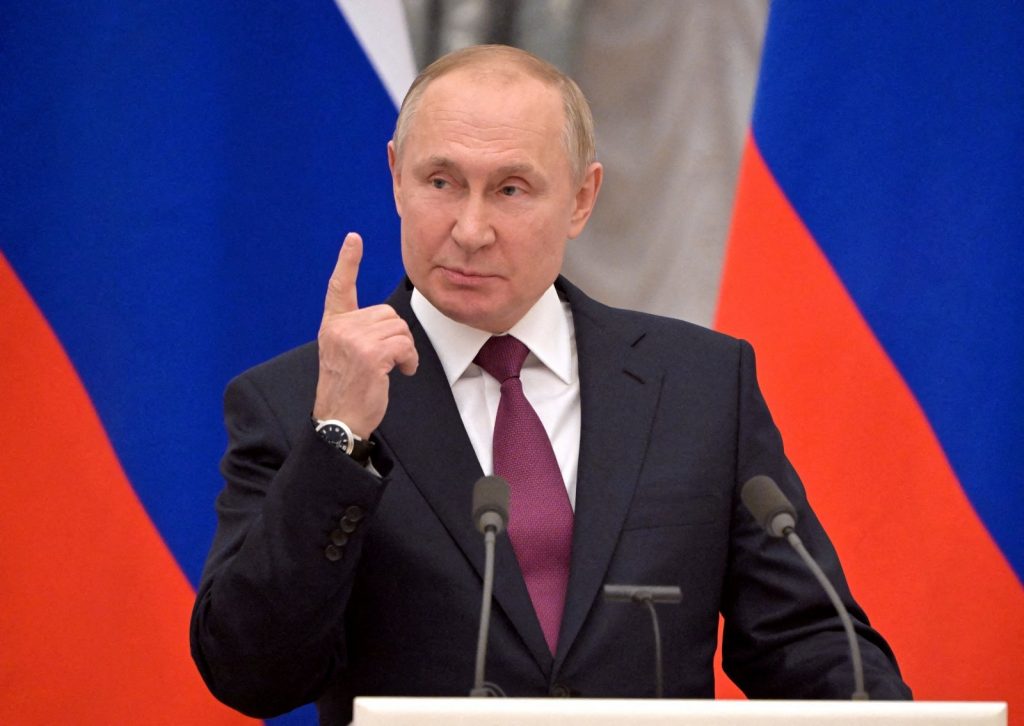
On Thursday, January 12, Vladimir Putin approved several instructions following the Council for the Development of Civil Society and Human Rights meeting on December 7, 2022. In total, 22 instructions were approved, which relate to different areas of activity.
Key aspects of the instructions:
- Putin instructed the Presidential Administration of the Russian Federation, with the CEC of the Russian Federation and the Commissioner for Human Rights, to consider the issue of improving the mechanisms of public control in the electoral process.
- Putin instructed the Government of the Russian Federation to consider issues related to the participants in the so-called “SMO”. Among other things: the development in Russia of the production of prostheses for limbs and the adoption of measures to meet the needs of healthcare systems in the occupied Ukrainian territories, the establishment of a dedicated centre for the provision of medicines to participants of the so-called “SMO” and their families, and the creation of a system for their targeted support. Also, Putin instructed to release from mobilisation orthopedists, prosthetists and doctors of other specialities residing in the temporarily occupied territories of Ukraine.
- Putin instructed the Government and the Bank of Russia to consider the case of creating a mechanism for banks and other credit institutions to pay compensation to customers whose funds were stolen as a result of fraudulent activities and, if necessary, submit proposals for making appropriate changes to the legislation.
- Putin instructed the Government to prepare proposals for compensation for housing located in the temporarily occupied territories of Ukraine. Also, a similar instruction was addressed to the leadership of the Russian regions bordering Ukraine, which suffered from shelling.
- Putin instructed the Government, together with the Supreme Court, the Presidential Council for the Development of Civil Society and Human Rights, the Commissioner for Human Rights, and the Presidential Commissioner for Children’s Rights, to prepare and submit proposals for amending the legislation aimed at strengthening the right to protection of citizens, involved in court cases to restore their legal capacity (cancellation of restrictions on legal capacity), including by providing for the mandatory participation of lawyers in such cases.
- Putin instructed the Ministry of Justice, together with the Ministry of Economic Development and the Civic Chamber of the Russian Federation, to consider proposals by the Presidential Council for the Development of Civil Society and Human Rights regarding the improvement of legal regulation of the activities of non-profit organisations, as well as the possibility of excluding individuals and legal entities from the list of founders of non-profit organisations. Putin also instructed the Ministry of Internal Affairs to take measures to ban the use of means of restricting mobility (handcuffs) against women, minors, and persons suspected and accused of committing non-violent crimes.
- Putin instructed the Prosecutor General’s Office, together with the Investigative Committee, the FSB, the Ministry of Internal Affairs and the Supreme Court, to take measures to cancel the legal consequences of bringing to criminal responsibility for political reasons citizens living in the temporarily occupied territories of Ukraine (“LDNR”, Zaporizhzhia and Kherson oblasts) for committing crimes foreseen by the criminal legislation of Ukraine.
Outcomes and outlook:
In fact, all of the instructions mentioned above are a preliminary demonstration of the future program of Putin’s election campaign, which will be based on the following principles:
- restoration of “new” (occupied) territories and their close integration into the Russian Federation (implementation of the motto “we do not abandon ours”);
- orientation towards the participants of the so-called “SMO” and members of their families (establishing new national symbols – combating Russian heroes);
- conditional liberalisation of several processes for those remaining in Russia and supporting Putin’s actions (simultaneously, in separate instructions, it is about the prohibition of discrimination against political “immigrants”).
The emphasis on social policy is Putin’s favourite hobby (for instance, the so-called “May Decrees”). Putin again turns to social matters but now emphasises that even the war and the annexation of the conquered territories will not make him move away from this topic. Leftist populism in this situation is apparent. Putin understands that appealing to the social component and the matter of justice is the key to his high ratings among Russians. Therefore, the issue of maintaining social standards in the new conditions will be constantly exaggerated in the forthcoming year. And the future image of Putin will be formed not only through the prism of war but mainly through confrontation with the West, which, under the current conditions, the contrary, is pursuing a policy of curtailing social programs (in April 2023, a kind of “anniversary”: 10 years since King Willem-Alexander of the Netherlands’ throne speech, in which the end of the era of social states in Europe was announced).
5. Meeting of Vladimir Putin with the Government of the Russian Federation
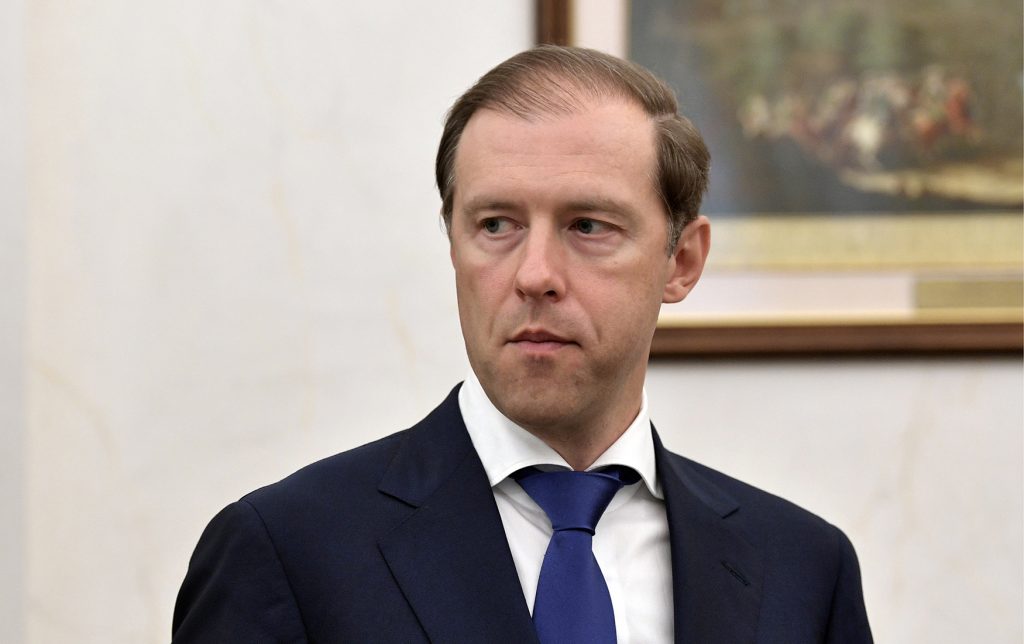
On Wednesday, January 11, Vladimir Putin met with the Government of the Russian Federation, during which reports from several ministers were heard, and the most critical issues were discussed. At the same time, Putin admitted that he had personal meetings with Prime Minister Mishustin and several ministers last week. He also thanked the Government for its work in 2022, noting that “due to the efforts of departments, nothing happened to Russia that its opponents predicted.”
A significant occasion during the meeting with the Government was Putin’s open criticism of Deputy Prime Minister, Minister of Industry and Trade Denis Manturov due to the lack of orders for aircrafts.
Timeline:
- Addressing Denis Manturov, Putin said: “It’s too much and too long! Enterprises must understand their opportunities, orders. They have to hire workforce, keep or expand the production capacity, do you understand?”. Manturov replied that he “will try to do everything possible with colleagues from the economic team.” The task will be completed during the quarter based on the opportunities “formed by the budget.” At the same time, Putin requested Manturov “not to play the fool” and deal with this problem as soon as possible.”
- Following the meeting, Dmitry Peskov, the press secretary of the President, specified that Vladimir Putin had no serious complaints about the work of Denis Manturov. Criticism at the meeting, he said, is “a normal workflow.”
- During the meeting, Deputy Prime Minister Oleksandr Novak also addressed problematic issues. He noted that now the main difficulty lies in the high discount of the price of Russian oil to the Brent standard. According to him, this is due to the high cost of cargo transportation on tankers. However, the Deputy Prime Minister expressed expectancy that the situation is temporary.
- Vladimir Putin instructed to prepare proposals to limit the impact of the discount on Russian oil on the budget.
- The participants also discussed the economy’s general situation. According to the Ministry of Economic Development head, Maksim Reshetnikov, inflation in the Russian Federation in 2022 amounted to 11.9%. However, by the end of the 1st quarter of 2023, the indicator will slow down sharply against the backdrop of a high base in March 2022, and in the 2nd quarter, it may temporarily drop below 4%.
- Vladimir Putin also called for paying attention to supporting new regions (temporarily occupied territories of Ukraine). Head of the Ministry of Health, Mikhail Murashko, said that the volume of supplies of medicines to these regions exceeded 7.5 billion rubles (USD 110 m approx.)
- The President instructed Deputy Prime Minister Tatiana Golikova to consider the issue of additional incentives for doctors working in the “new” (occupied) territories. At the same time, he noted that hostilities are not a reason to postpone solving residents’ problems until later.
Outcomes and outlook:
During Putin’s meeting with the ministers, many experts drew attention to the fact that the President of the Russian Federation criticised Deputy Prime Minister Denis Manturov. At the same time, Manturov is not the only person responsible for Russia’s defence industry. He is a protege of Sergey Chemezov and a close friend of the head of the Presidential Administration, Anton Vaino. That is, criticism was not so much addressed to Manturov (Putin’s press secretary Dmitry Peskov even made a statement that there were no comments on Manturov’s work) but Chemezov and the Rostech corporation. Rumours that Putin is dissatisfied with Chemezov are partially confirmed. Still, since their joint service in Germany, Chemezov has been one of Putin’s most loyal and devoted friends. And most likely, we should expect that both Chemezov and his proteges will remain in their chairs. Removing Chemezov from the game could upset Russia’s entire system of balances and equilibria. But criticism of Manturov can increase the efficiency of defence enterprises and the whole industry.
6. Interview with Nikolay Patrushev
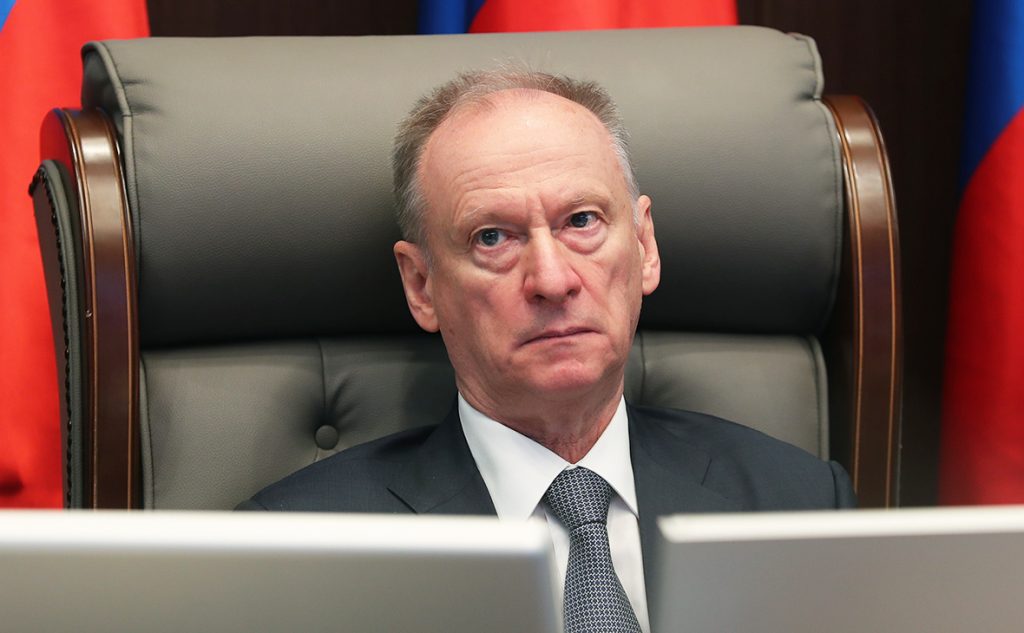
On Tuesday, January 10, the “Argumenty i Fakty” newspaper published an interview with the Secretary of the Security Council of the Russian Federation, Nikolay Patrushev. In it, he made a few statements about Russia’s relations with the West, the turn towards Asia, and the situation in Ukraine.
Key theses:
- “The situation in the world is extremely tough and turbulent. Many countries in different regions are simultaneously in a military-political, economic, social and spiritual crisis. Let’s hope there will be positive changes this year.”
- “Obviously, the real power in the West is in the hands of resourceful clans and transnational corporations.”
- “The capital of several transnational companies exceeds the GDP of most of the world’s economies, and their funds for further enrichment claim to be a supranational mechanism for managing humanity. The same Soros Foundation has become almost the main world centre for planning and implementing “colour revolutions”.
- “The American draft budget for 2023 is the best evidence of Washington’s plans to unleash new wars to the detriment of the well-being of its citizens.”
- “In essence, the American state is just a shell for a conglomerate of huge corporations that rule the country and try to dominate the world.”
- “Earlier, the West came to prosperity and achieved world domination through colonial conquest. This is precisely how multinational companies behave today, preferring to increase their capital by pumping resources from other countries.
- “Under the circumstances of tremendous changes in the world, corporations aim to preserve the system of global exploitation. It is led by an elite of business people who do not associate themselves with any country. Below it is the so-called developed countries of the world, as well as the “golden billion”. And then, the rest of humanity contemptuously referred to as the “third world”.
- “There is no place for our country in the West. Russia annoys many world rulers because it has rich resources, a vast territory, and intelligent and self-sufficient people.
- “In this regard, the Westerners seek to weaken our country, dismember it, and destroy the Russian language and world. They have long worked out the technology of undermining their rivals from within and breaking them into small states. This was how they acted before, when, for example, London, following the results of the First World War, collapsed empires and stamped dozens of countries out of them. This is how they operate today. An excellent example is Yugoslavia. The state, which had an independent voice in the international arena, was divided into six.
- “We are not at war with Ukraine because, by definition, we cannot have hate towards ordinary Ukrainians. Ukrainian traditions are close to the people of Russia, just as the heritage of the Russian people is inseparable from the culture of Ukrainians.”
- “The events in Ukraine are not a clash between Moscow and Kyiv; this is a military confrontation between NATO, and above all the US and the UK, with Russia. Fearing direct contact, NATO instructors are driving Ukrainian men to certain death.”
- “Neo-Nazi criminals who have been rampaging in Ukraine in recent years will inevitably be punished.”
- “Financial independence is important for Russia and technological sovereignty. We have plenty of our Lomonosovs and Kulibins. The problem is to notice them in time.”
- “The West has mastered the zombification of people with the help of mass propaganda, and now it seeks to use cognitive weapons, influencing each person pointwise with the help of information technologies and methods of neuropsychology. Promotes neoliberal and other values, some of which are inherently directly opposed to human nature. They act consciously and in their circle and do not hide the fact that the LGBT agenda is a tool for gradually reducing the number of “extra people” who do not fit into the framework of the notorious “golden billion”.
- “Our country is on the path to building a strong, modern, independent economy to achieve economic sovereignty. Russia has all the resources for this. We need a culture of their use, a careful and prudent attitude to our treasures – natural and intangible. Russian business must be nationally oriented. Just like the authorities, private capital should consider the country’s long-term development.”
- “For a Russian person, hatred, by definition, cannot be a unifying principle. Only Westerners are full of hatred and openly call us opponents. But they need to be reminded of their unsuccessful military operations in Vietnam, Afghanistan, and other countries[…] But in the face of the emergence of new military threats, we need to have such armed forces and special services so that Russia’s opponents would not even have the thought that they could fight with us.”
Outcomes and outlook:
The figure of Nikolay Patrushev in Russian politics is very non-public but influential. He often makes statements or comments on certain events but rarely communicates with the media in the format of detailed interviews. At the same time, the presence of a high position, as well as profound influence in Putin’s entourage (according to Ascolta, Patrushev heads a conditional group of “siloviki” in Putin’s inner circle), give reason to pay attention to such interviews and conduct an in-depth analysis of statements.
In fact, some of Patrushev’s statements, expressed in an interview for the “Argumenty i Fakty”, are refined and averaged concepts of what Putin and Medvedev are talking about throughout 2022. And if Putin makes political statements, sometimes incomprehensible to the general public, and Medvedev voices an ultra-radical position and calls for direct clashes with NATO, then in this case, Patrushev addresses the Western audience with more balanced theses. By doing this, he tries to express Russia’s position and clearly open the curtain about its future strategy.
Of course, such an interview appeared at the suggestion of the Putin Administration. Therefore, it certainly should not be seen as an attempt to enter into a confrontation with the official position of the Russian president.
A few fundamental theses can be distinguished from Patrushev’s statements:
- Russia is at war with the world backstage system, which is based on the power of transnational corporations (globalists) and their colonial ambitions.
- Russia is not at war with Ukraine but is only trying to destroy the nationalist component, which poses a real threat to Russia.
- Russia does not see its future with the West. Therefore, the turn towards Asia implies the maximum strengthening of internal processes and their complete autonomy, allowing to eliminate of external dependence as much as possible.
The theses voiced by Patrushev were evidently addressed to the West to offer new conditions for further relations. The determining factor should be the recognition of Russia as one of the centres of the multipolar world.
In this case, we expect a similar response from the West, which will most likely be voiced similarly: by publishing an article with deep meanings by one of the leaders of public opinion from the Western camp.


